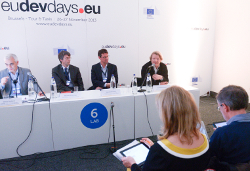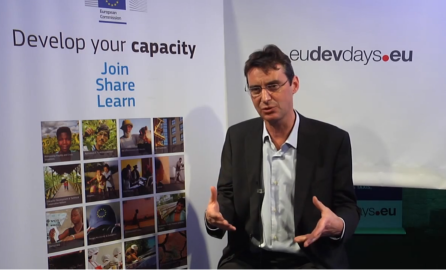International telecommunications company Orange, recently tested the potential for Big Data to contribute to development when it released anonymous data from five million-plus cell phone users in Cote d’Ivoire and invited researchers to see what they could do with the information.
The released records provided the basis for ‘Data for Development’, an open challenge for research teams from across the world to see how they could crunch five months worth of cell phone network statistics for the economic and social development of a nation.
Cote d’Ivoire is a developing West African country recovering from years of political instability, but among its population of almost 20 million people more than 80 percent have access to a mobile phone, according to some commercial estimates.
Teams of researchers from across the world submitted around 80 contributions presenting new scientific models or creative ways of analysing their mobile phone data for a host of development related activities.
“We’ve been overwhelmed by the success of this challenge,” said Nicolas de Cordes, Vice President Marketing Vision at Orange. “We had teams collaborate to cross our network data with data on epidemics of malaria, meningitis or cholera in the country.”
“Or teams that worked on transportation in [the capital] Abidjan and across the country,” he added.
In today’s world, organisations, websites and service providers are increasingly gathering swathes of information, or Big Data. Typically defined as information notable for its volume, velocity and variety, it can also be highly complex to manage. But working out ways to use this information could prove a valuable development tool.
One of the aspects that makes mobile phone data so useful is that it includes information about population movement as every time the phone user sends a text or makes a phone call the operator’s system logs their location.
“Some of the researchers have developed new scientific ways of analysing the data,” said Vincent Blondel, Professor of Applied Mathematics at Belgium’s Université catholique de Louvain (UCL) and Chairman of the Data for Development challenge. “Others, it’s really the creativity with which they have analysed the data.”
Many of the researchers put the network information on population movement to good use, including winning contributions from The School of Computer Science at the UK’s University of Birmingham and IBM Research in Ireland.
The University of Birmingham team used the network data to track actual population movements then created a scenario of how these movements might affect the spread of a contagious disease. Their model found that information campaigns, like reminding people of the need for boiling water in times of a cholera outbreak, can have significantly more impact on reducing the number of people who fall ill than a quarantine, which simply slows the spread of a contagious diseases.
Whereas, the IBM team devised a way of using network information on the movement of users to inform planning and development of transportation services. Their system, AllAboard, provides statistics on the actual movement of people in a city that can be used to improve or develop an efficient and user-friendly commuter or transit network. Presently, traffic assessments are made manually with a traffic counter placed at road junctions armed only with a paper and pen.

Mr Blondel and Mr de Cordes at the European Development Days session on 'Data for Development'
Following the success of the Data for Development Challenge, Orange are looking to partner with other developing countries to carry out similar releases of information, according to Mr de Cordes.
But for more companies to make releases of big data a matter of common practice, a number of big questions need to be answered regarding user confidentiality and privacy protection.
In this challenge, measures were taken to protect the confidentiality of the information before it was released and research institutions had to sign a number of agreements on how the information would be used.
Such measures would be more difficult to enforce on larger scale data releases, though given the value of such information, Mr Blondel is keen for a solution to be found.
“Someday … we will realise that if we had this data, it would help save lives,” said Blondel. “We want to use the data, but in a privacy-protected way.”
“There is a responsibility there for the scientific community but also for the society as a whole to decide where the threshold should be put in order to be able to use the data in a positive way, and in particular protect lives, and at the same time release some information on the whereabouts of people,” said Mr Blondel.
“What is the tradeoff there that we have to reach?” asked Mr Blondel. “This is a question for society as [a] whole.”
This collaborative piece was drafted by Sarah Simpson with input with support from the capacity4dev Coordination Team.
Teaser image courtesy of luckey_sun on Flickr.






Log in with your EU Login account to post or comment on the platform.